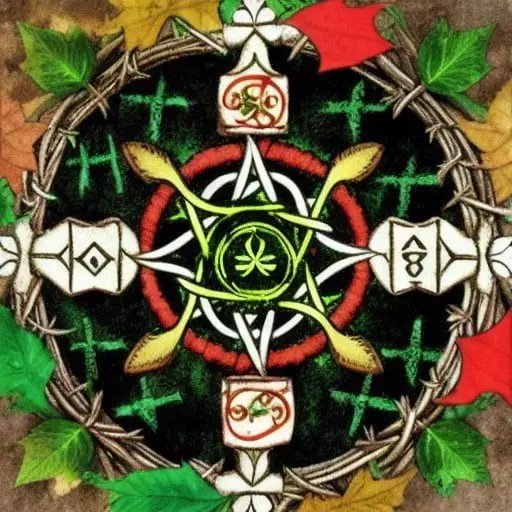Paganism, an ancient religion that worships nature and multiple gods, has a dark history of persecution. From the Roman Empire to the Christian Church, Paganism has been systematically targeted and suppressed for centuries. The persecution has resulted in the loss of countless lives, the destruction of cultural heritage, and trauma that still affects modern-day Pagans. In this article, we will delve into the origins of Pagan persecution and the devastating impact it has had over the years.
The Origins of Persecution of Paganism
The persecution of Paganism can be traced back to the Roman Empire when Christianity became the official religion. The emperors saw Paganism as a threat to their power and sought to eradicate it. Pagan temples were destroyed, and their priests were executed or forced to convert to Christianity. Theodosius I even made it illegal to practice Paganism in 391 CE, which led to the destruction of ancient temples like the Parthenon in Athens.
When the Roman Empire collapsed, Christianity became the dominant religion in Europe. The Catholic Church, which emerged as a powerful institution during the Middle Ages, continued the persecution of Paganism. The Church leaders saw Paganism as a heresy and a danger to the Christian faith. They launched campaigns against Pagan practices like witchcraft and demon worship and burned countless Pagans at the stake.
The persecution intensified during the Spanish Inquisition in the 15th century. The Inquisition targeted not only Jews and Muslims but also Pagans who practiced traditional religions. Many Pagans were tortured, executed, or forced to convert to Christianity during this period. The Inquisition also led to the destruction of many books and artifacts, which resulted in the loss of valuable historical information.
The Devastating Impact of Pagan Persecution
The persecution of Paganism has had a devastating impact on the religion and its followers. Many Pagans were forced to go underground and practice their faith in secret to avoid persecution. This led to the loss of knowledge and traditions that were passed down orally from generation to generation. The destruction of Pagan temples and artifacts also resulted in the loss of cultural heritage.
The persecution of Paganism also had a psychological impact on its followers. Many Pagans were traumatized by the violence and brutality they experienced or witnessed. They were stigmatized and demonized by the dominant culture, which led to feelings of shame and guilt. Even today, many Pagans struggle with self-acceptance and fear of persecution.
The persecution of Paganism has also had a long-term effect on Western culture. Many aspects of Paganism, such as the celebration of the solstices and equinoxes, were incorporated into Christianity and became part of Western culture. However, the true meaning and significance of these traditions were lost, and they became diluted and commercialized.
In recent years, there has been a resurgence of interest in Paganism. Many people are rediscovering the ancient wisdom and spirituality of the religion. However, Pagans still face discrimination and persecution in many parts of the world. In some countries, Pagans are still considered criminals and are not allowed to practice their faith openly.
The persecution of Paganism is a dark chapter in human history. It has resulted in the loss of countless lives, destruction of cultural heritage, and trauma that still affects modern-day Pagans. It is important to acknowledge this history and work towards building a more tolerant and inclusive society where people of all faiths can practice their beliefs without fear of persecution.

